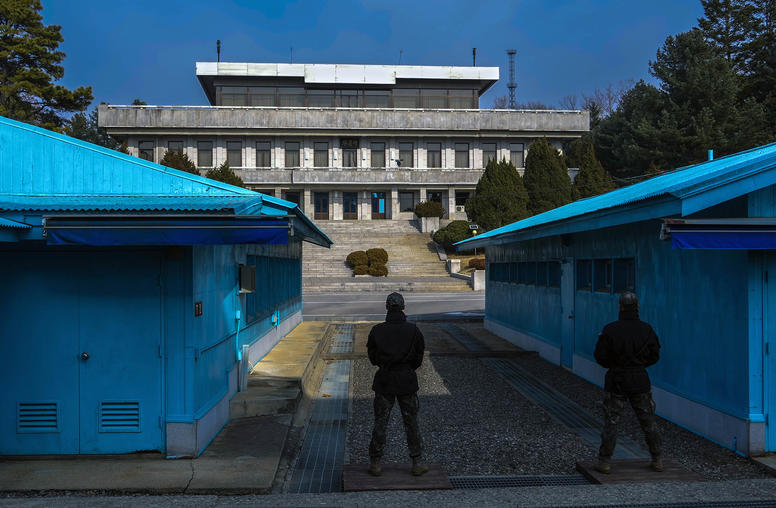Publications
Articles, publications, books, tools and multimedia features from the U.S. Institute of Peace provide the latest news, analysis, research findings, practitioner guides and reports, all related to the conflict zones and issues that are at the center of the Institute’s work to prevent and reduce violent conflict.

Dean Cheng on China’s Expanding Space Capabilities
China’s successful trip to the far side of the moon — the first nation to accomplish the feat — is not only “great advertising” for potential technology partnerships, it’s “part of the larger Chinese space effort” that seeks to expand China’s own dual-use capabilities in space, says USIP’s Dean Cheng.

Dean Cheng on China’s New Military Force
China’s military structure is not prone to change. But in a shocking move, Chinese leader Xi Jinping recently established a new military entity focused on “information dominance” in future wars, with many observers “left wondering what this is going to mean and why they did it,” says USIP’s Dean Cheng.

Asfandyar Mir on Balancing Counterterrorism and Strategic Competition
As terror threats emanating from Afghanistan and Pakistan rise, many may see counterterrorism as a distraction from other U.S. priorities, such as competition with China and Russia. But investment in counterterrorism can work “preventively, to shield the strategic competition agenda,” says USIP’s Asfandyar Mir.

Keith Mines on the Latest from Haiti
While Haiti’s Transitional Council has appointed a prime minister to lead a temporary government and the Kenyan-led international security mission is expected to deploy soon, “[Haiti’s] gangs are still pretty strong,” says USIP’s Keith Mines. “There’s really going to be a fight for power … over the coming months.”

Mary Glantz on Russia and North Korea’s Deepening Cooperation
Putin’s trip to North Korea wasn’t just about securing more weapons for his war on Ukraine — Moscow and Pyongyang signed a mutual defense pact, which could be “potentially very destabilizing for the Korean Peninsula” and “smacks a little of desperation” on Russia’s part, says USIP’s Mary Glantz.

Joseph Sany on the U.S. Withdrawal from Niger
The U.S. reached an agreement with Niger’s military junta to close two military bases in the country in what amounts to a “tactical setback” for counterterrorism efforts in the Sahel. But the closure also “forces the U.S. to review its military posture in the region,” says USIP’s Joseph Sany, adding “there may be other options.”

70 Years After the Geneva Conference: Why is the Korean Peninsula No Closer to Peace?
July marks the anniversary of the 1953 armistice agreement that ended the Korean War and the 1954 Geneva Conference, convened to resolve the issues that the war could not. In the seven decades since, efforts to achieve peace on the Korean Peninsula have been limited and flawed. Today, the security situation in the region is arguably more precarious than ever, with a nuclear armed-North Korea and dysfunctional great power relations. Recent foreign policy shifts in North Korea do not augur well for peace in the near term. Thus, even moving the needle toward peace will likely require Washington to undertake bold initiatives.